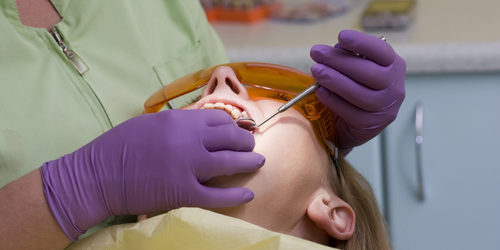The whole ordeal of choosing dental implants over traditional methods is a big deal. It is a more complicated and more expensive treatment, so after going through what you did, it is only natural that you’d want to protect your investment. To maximize the lifetime of your implants and make sure that you get to enjoy it for a while, you will want to avoid implant failure.
The success rate of implants is high in comparison to other dental prosthetic options, but for you to guarantee success, you have to take note and take the following things seriously:
1. Patient selection. This is the very important factor to consider for implant success. There are certain medical conditions and all kinds of pre-existing conditions that will automatically disqualify a patient as an implant patient so no compromises about this should be made. A case of osteoporosis and diabetes completely disqualifies a patient from receiving dental implants because the implants will never stabilize and integrate with the bone.
2. Implant placement and treatment design. Ideally, implants are embedded into the bone and they are placed with a crown, and they replace lost teeth in a 1:1 ratio. For failures to be avoided, the implants have to be placed in sufficient bone and they should not be overloaded. It is most ideal that one implant be fitted with a crown, but two implants may act as support to hold a bridge. Overloading the implant will hinder proper healing. At the same time, placing an implant in an area of insufficient bone may lead to encroachment of vital tissues and so forth.
3. Oral hygiene. If a patient has gum disease, this issue should be resolved first before the treatment is carried out. In such cases, the patient should be properly instructed about maintaining good oral hygiene because plaque can interfere with osseointegration and compromise stability. Gum disease will increase likelihood of implant failure because plaque can directly cause bone infection that will cause loose and dislodged implants.
4. Smoking. If the patient is a smoker, proper warning ought to be given because the chemicals in cigarettes are harmful and will disrupt and delay healing. Patients who are to receive implants should at least stop smoking before the implant site has healed. It, of course, will be best if the patient can completely smoking. It is a very bad habit that does more bad than good for the body.
5. Teeth grinding and clenching. A simple case of teeth grinding is a big factor in dental implant failure. The constant disruption due to the overactivity of the masticatory muscles will be traumatic so that the implant and bone will never fuse together to gain stability.
The implant is relatively a foreign body, but since its composition allows bone-metal fusion which is called, osseointegration to take place, complete stability is possible. For this to take place, however, it is your goal to avoid implant failure. You want the tissues to heal successfully and the bone to fuse with the implant. If this happens, the implants are deemed successful and you may be allowed to enjoy it for a very long time.








